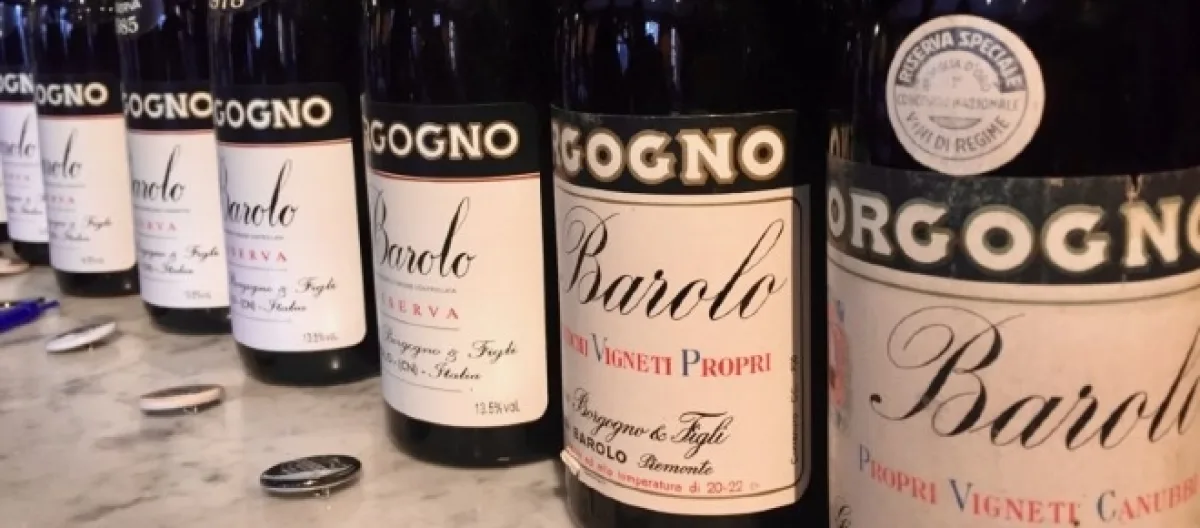Early this month, Libiamo had the opportunity to meet Andrea Farinetti, the young manager of the Borgogno Winery. Borgogno started to produce traditional, benchmark Barolo in Piedmont in the 1920s. Andrea can be praised for his sense of innovation and entrepreneurship.
Andrea, when did your interest for wine start?
"When I was a kid, I used to go for walks in the Langhe vineyards with my parents; we used to steal and eat grapes from the magnificent vineyards belonging to old local growers. But I officially fell in love with wine at 14, when I enrolled at the oenological School: a life experience that lasted six incredible years."
What has been your greatest success since you started managing Borgogno in 2010?
"I don't know if I can call them "successes", that’s for you to judge! When someone enters the wine world for the first time, he or she naturally focuses more on the cellar, overlooking the vineyards a bit. In 2010, I immediately wanted to bring changes to the Winery, innovating in the opposite direction: cellar first, then vineyards. We did this by going back to only using indigenous yeasts and spontaneous fermentations. In 2013 the big return to cement tanks for the fermentation of our wines happened. In 2015, I decided to start the conversion to organic farming; and last year, in 2016, we experimented with biodynamic farming."
Unlike many international grapes, Nebbiolo is naturally bound to a single territory, Piedmont (of course). Do you feel challenged by the attempt of foreign wineries to grow Nebbiolo, for instance in Australia?
"Not at all, I’m proud of my land and of its achievements that have been so significant that other parts of the world are now trying to experiment with the cultivation of Nebbiolo. Some areas in the world are similar to ours in climate, altitude, exposition, and maybe even in the properties of the soil. But they are all missing something of fundamental importance: the Piedmontese ”savoir-faire”."
How would you like to promote Barolo globally? Have you ever thought of organizing a Barolo Night in London to highlight the social aspect of this wonderful wine?
"It is really hard to communicate wine: if we overdo it, we risk lowering its perceived value and making it seem cheap. The best way is to communicate through whispers, narrating rather than communicating. If we do things with some level of poetry, everything becomes easier, and if we do it at night, in London, everything becomes more magical. I like it, let’s do it!!"
In your opinion, what role will Piedmontese wine have, globally, in the next decade?
"I think Piedmontese wine will have a leading role in international trade. By now the Langhe area is at its peak in terms of production and demand, and the wines are recognized for their high quality. For this reason, the coming years will see a further increase in the quality of these already-great wines as well as an increase in sustainability that will make them progressively “greener”."
Lastly, our unavoidable question: If you had to suggest a pairing such as the right soundtrack to drink your Barolos with, what would it be?
"In this precise moment I would like to drink a glass of #Barolo while listening to Biancaluna – Giammaria Testa, a great song-writer from the Langhe."
We really like Andrea’s sociable and enthusiastic approach to #wine. The products made by the Borgogno Winery mirrors such dedication. You can try the Barolo DOCG on the online wine store #Libiamo.
